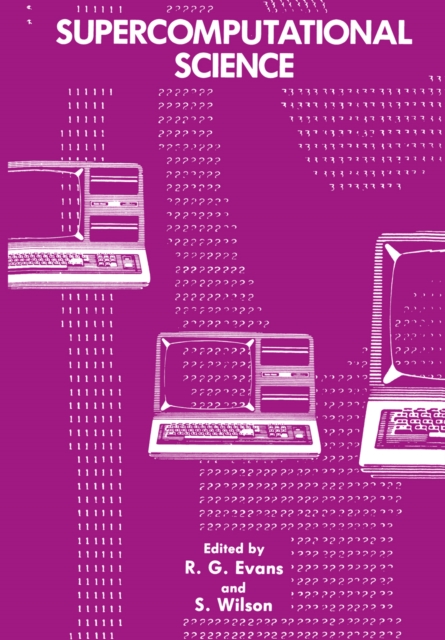
Supercomputational Science PDF
Edited by R.G. Evans
Description
In contemporary research, the supercomputer now ranks, along with radio telescopes, particle accelerators and the other apparatus of "big science", as an expensive resource, which is nevertheless essential for state of the art research.
Supercomputers are usually provided as shar.ed central facilities.
However, unlike, telescopes and accelerators, they are find a wide range of applications which extends across a broad spectrum of research activity.
The difference in performance between a "good" and a "bad" computer program on a traditional serial computer may be a factor of two or three, but on a contemporary supercomputer it can easily be a factor of one hundred or even more!
Furthermore, this factor is likely to increase with future generations of machines.
In keeping with the large capital and recurrent costs of these machines, it is appropriate to devote effort to training and familiarization so that supercomputers are employed to best effect.
This volume records the lectures delivered at a Summer School held at The Coseners House in Abingdon, which was an attempt to disseminate research methods in the different areas in which supercomputers are used.
It is hoped that the publication of the lectures in this form will enable the experiences and achievements of supercomputer users to be shared with a larger audience.
We thank all the lecturers and participants for making the Summer School an enjoyable and profitable experience.
Finally, we thank the Science and Engineering Research Council and The Computer Board for supporting the Summer School.
Information
-
Download - Immediately Available
- Format:PDF
- Publisher:Springer US
- Publication Date:06/12/2012
- Category:
- ISBN:9781468458206
Information
-
Download - Immediately Available
- Format:PDF
- Publisher:Springer US
- Publication Date:06/12/2012
- Category:
- ISBN:9781468458206






